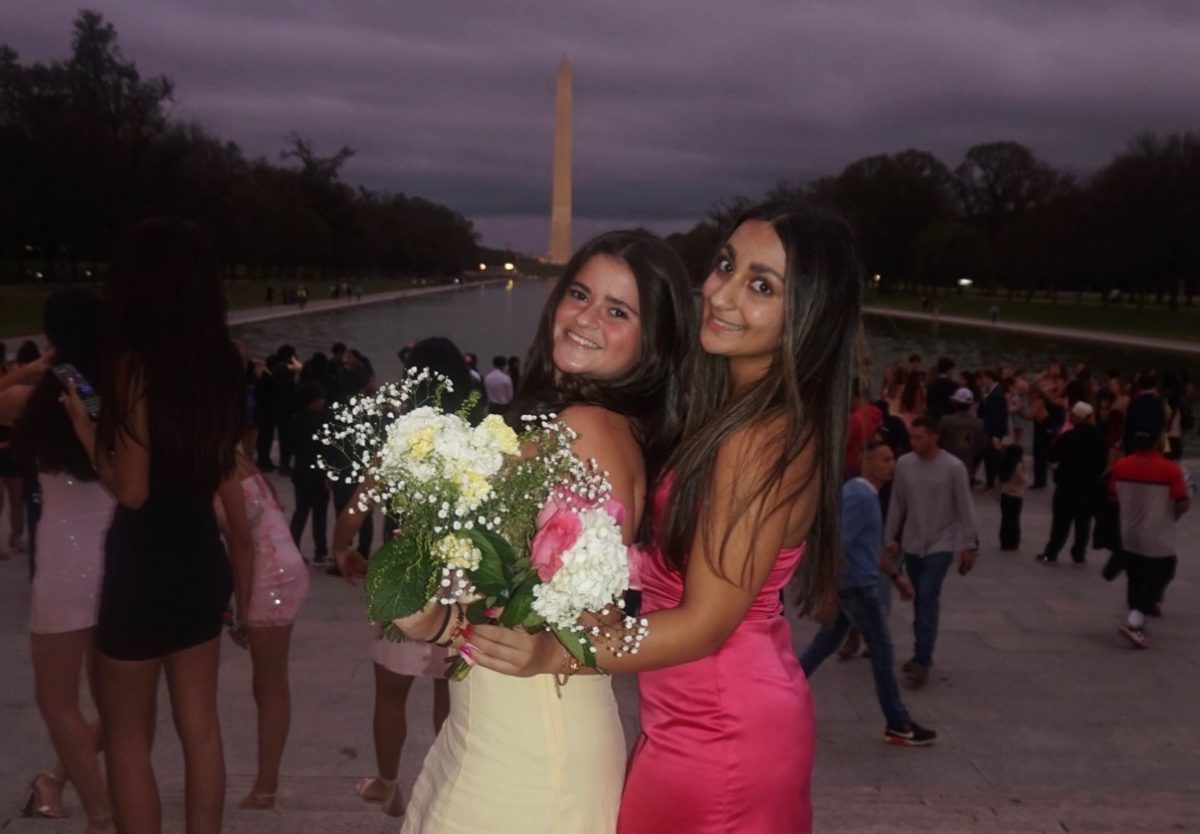
On Mar. 13, with bipartisan support, the House passed a bill giving Chinese company ByteDance the ultimatum of selling TikTok within the next six months or having it banned across the nation. Chinese control of the platform poses questions about a national security risk due to their access to American data, however, banning it may be a First Amendment violation.
TikTok has become increasingly prominent in the lives of Americans and all users. Utilizing a complicated algorithm that recognizes users’ preferences through what posts they interact with, the app shows them similar content, which has proven to be effective in hooking viewers. The app has been specifically effective in attracting younger audiences and normalizing negative messages.
Students have strong feelings about the proposed ban. “I believe that banning TikTok could definitely benefit the community and our youth. A lot of impressionable people are in the app and there is a lot of harmful content on it. However, banning the app would also greatly upset some people,” sophomore Leila Alam said.
The usage of TikTok suppresses productivity and increases users’ need for instant gratification in scrolling. “TikTok has definitely affected my attention span because I find myself mindlessly scrolling until I find something that’s interesting,” sophomore Roshali Abeywarna said.
As one of the biggest apps worldwide, it has become well-regarded due to the variety of functions available, the opportunity for users to be social and creative, and its usage as an outlet for youth to express themselves. “I personally love TikTok and find it to be such a good app to communicate with my friends, watch dancing/funny videos, meet new people and make my own videos. I would be really upset if it got banned,” freshman Haley Ascienzo said.
Initially, short-form, digestible content seemed like it performed the best, however, two years ago, TikTok added a feature that allowed users to post 10-minute videos, signaling the transition to popularizing longer content. “I prefer shorter content because I’m eager to see what the next video is,” Abeywarna said.
Former President Donald Trump flip-flopped his support for the video-sharing app, originally pushing for a ban through an executive order that was stopped by the courts in 2020. To now, he has been publicly against the prospect of a ban but because of his actions in 2020, the threat of a ban is not a new concern. “I feel that since [the potential banning of TikTok] has happened multiple times before this time shouldn’t be significantly worrisome,” Alam said.
Similar to other social media platforms like Instagram and YouTube, TikTok has come with its own wave of content creators whose livelihood depends on the app. “I think if TikTok were to get banned many of the famous influencers would still be famous because of Instagram. A lot of them have gained a big platform on there too, but they did get famous because of TikTok so it would definitely be different,” Ascienzo said.
According to Statista, there were nearly 150 million American TikTok users as of January this year, making the U.S. the country where the app is most popular. If the bill passes in the Senate, President Joe Biden said that he would sign it into action, and if a nationwide ban does go into effect, it could be immensely troublesome for ByteDance. It is not yet known when the Senate will debate this issue.







![Editors-in-Chief Ahmed Ibrahim, Helen Manolis, Cameron Cowen, Alex Grainger, Emory Scofield, Hayley Gottesman, Rebekah Buchman and Marley Hoffman create the first print magazine of the year during the October press days. “Only a quarter of the schools in MCPS have programs that are like ours, a thriving, robust program. That makes me really sad. This is not just good for [the student journalists] to be doing this, it’s good for the entire community. What [student journalists] provide to the community is a faith in journalism and that continues for their lifetimes," Starr said.](https://woottoncommonsense.com/wp-content/uploads/2025/10/wmpoFTZkCPiVA3YXA4tnGoSsZ4KmnKYBIfr18p3l-900x1200.jpg)
